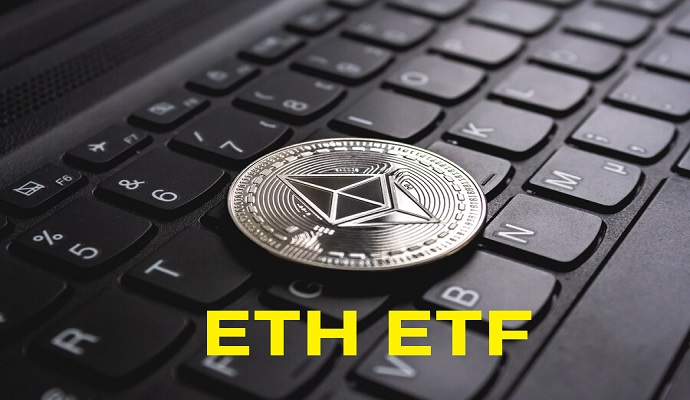ETH ETF – Ethereum (ETH) Exchange-Traded Fund (ETF)
Understanding Ethereum (ETH) Exchange-Traded Fund (ETF)

An Ethereum (ETH) Exchange-Traded Fund (ETF) is a type of financial product that allows investors to gain exposure to Ethereum without directly owning the cryptocurrency itself. Here’s a detailed overview of ETH ETFs:
What is an Ethereum ETF?
An Ethereum ETF is a fund traded on stock exchanges, similar to traditional ETFs, that aims to track the price of Ethereum (ETH). Investors can buy shares of the ETF, which represent ownership in a portfolio of Ethereum or related assets, without needing to manage the underlying cryptocurrency directly. This can provide a more accessible and regulated way to invest in Ethereum for those who prefer not to handle the technical aspects of cryptocurrency ownership.
Structure of ETH ETFs
ETH ETFs can take different forms, including:
- Physical Backed ETFs: These ETFs hold actual Ethereum in reserve. When you invest in these ETFs, the fund buys and holds Ethereum on behalf of investors, and the value of the ETF shares generally reflects the price of the underlying Ethereum.
- Futures-Based ETFs: These ETFs invest in Ethereum futures contracts rather than the cryptocurrency itself. Futures contracts are agreements to buy or sell Ethereum at a future date at a predetermined price. The performance of a futures-based ETF may differ from the price of Ethereum due to factors like contract rollovers and market volatility.
Benefits of Investing in an ETH ETF
- Accessibility: ETH ETFs offer a straightforward way for traditional investors to gain exposure to Ethereum without dealing with cryptocurrency exchanges, wallets, or private keys.
- Regulation: ETFs are regulated financial products, which can provide a level of security and transparency that might not be present with direct cryptocurrency investments.
- Liquidity: ETFs trade on major stock exchanges, providing high liquidity and the ability to buy and sell shares throughout the trading day.
- Diversification: Some ETH ETFs might include a mix of Ethereum and related assets, offering diversification within the cryptocurrency sector.
Risks and Considerations
- Volatility: Ethereum and other cryptocurrencies are known for their high volatility. The value of ETH ETFs can fluctuate significantly, reflecting the underlying cryptocurrency’s price movements.
- Fees: ETH ETFs may have management fees and other expenses that can affect overall returns. It’s important to review these fees before investing.
- Tracking Error: For futures-based ETFs, there might be discrepancies between the performance of the ETF and the actual price of Ethereum due to factors like the cost of rolling over futures contracts.
- Regulatory Risks: The regulatory environment for cryptocurrencies is evolving. Changes in regulations can impact the performance and availability of ETH ETFs.